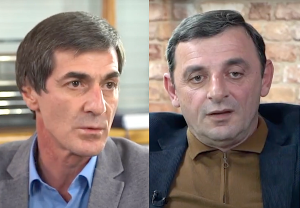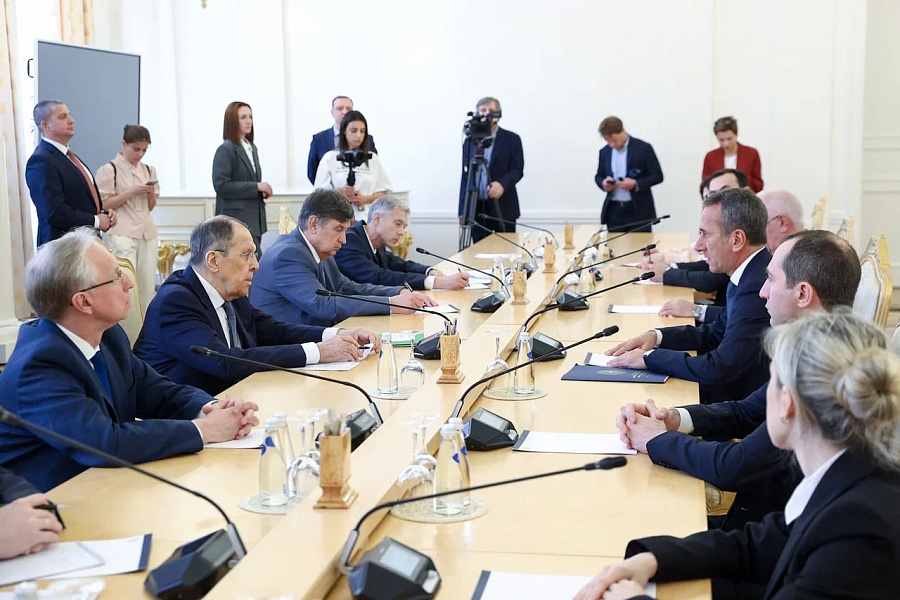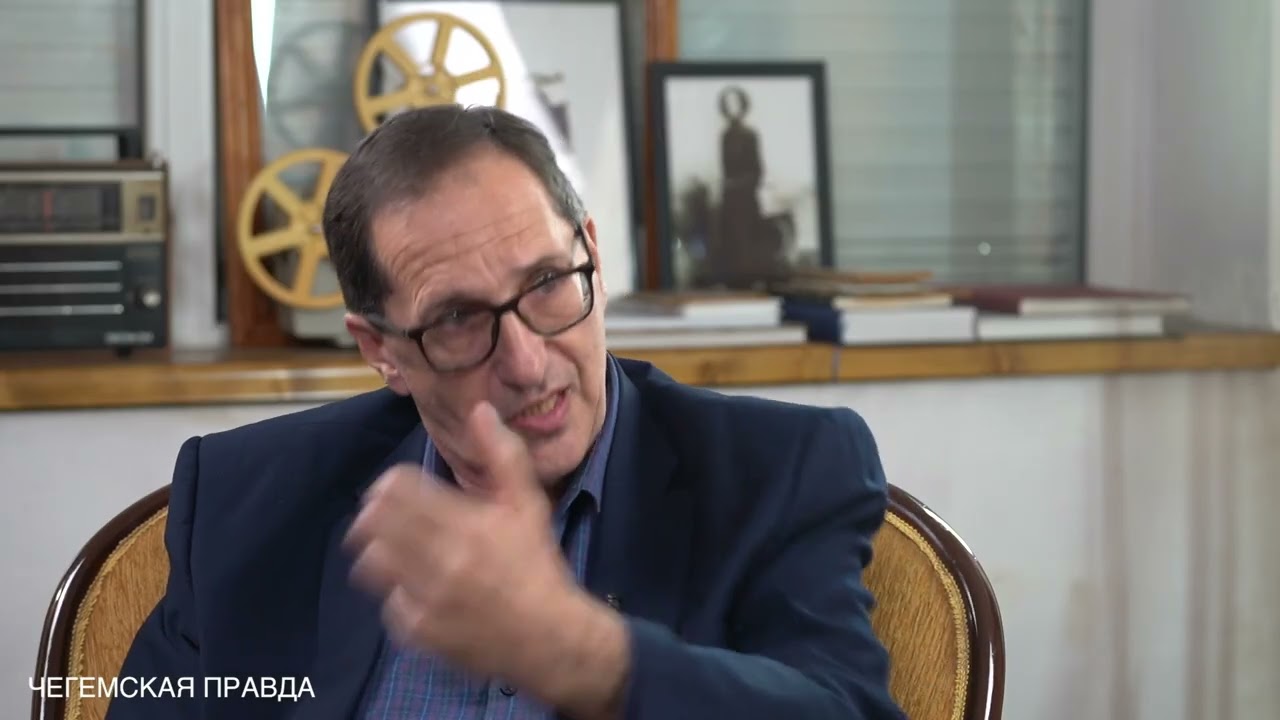
Georgians in Abkhazia
In Gali district in Abkhazia live virtually only ethnic Georgians. One of their biggest problems is with documents.
In 2014, by decision of the parliament of Abkhazia, more than 30 thousand residents of the Gali district had their previously issued Abkhazian passports canceled. The main reason for this was the fact that they had a second citizenship – Georgia, which is prohibited by Abkhazian legislation.
Obtaining at least a residence permit for the majority of local residents is also very difficult or impossible.
Head of the administration of the Gali district, Konstantin Pilia, in a conversation with the editor of the newspaper Chegemskaya Pravda/JAMnews editor in Abkhazia, Inal Khashig, discusses how painful this problem is for people, why it is not being solved and why it is important to help and not hinder the integration of Gali Georgians into Abkhazian society.
The text version of the conversation is provided below
Inal Khashig: Parliament recently approved a provision under which a residence permit in Abkhazia is now granted for 10 years (until now it was issued for five years). Ethnic Georgians with this document are the main part of residents of the Gali district.
When citizenship was canceled for them in 2014 and there was talk of issuing them a residence permit, it was assumed that they would have all rights except the right to vote and participate in political life. To what extent does this document finally meet these norms?
Konstantin Pilia: Yes, they do not have political rights, and this was not originally envisaged. But there are still restrictions.
People live in their ancestral houses and they can sell them or inherit them. But to buy something else, to expand, to add a plot of land – they don’t have these rights.
Another problem: the residence permit does not allow hunting weapons. For a villager who lives in the forest, where there are wild animals and jackals around, this is a big problem.
Probably the biggest problem is the timing of the residence permit. It is issued only after 10 years of residence, but this has to be proved, and only with documents issued by the police.
This means that you should have registered with the police 10 years ago. But none of us locals ever register anywhere. And most people here don’t have these documents.
After they were stripped of their citizenship, they started to be issued residence permits under a simplified scheme because people could not go to Russia. Many had children studying there, and we helped them find places at university on quotas. But when a parent knows that he or she will not be able to go to his or her child, many people gave up this opportunity to study.
But the residence permit was given for five years anyway. When this period is over, a person has to prove his right to a new document, to present documents. And where to get them, is there anything preserved anywhere?
It is good that the Parliament has now received a bill on this. We see unanimity among MPs, this law is not a conflict for them.
Both opposition MPs and those from the government realize that this issue needs to be resolved, that it cannot go on like this.
We must realize that either these are our people or these are not our people. But then the issue must be solved in a different way.
Inal Khashig: Is there any mechanism for these people to become full citizens? Abkhazian citizenship is automatically given to Abkhazian, wherever he was born, wherever he has other citizenship. What other way is there?
Konstantin Pilia: It is very difficult to become a citizen. I, for example, practically could not help anyone. But only my friend, we served together in the army, I helped his son to get citizenship.
His grandmother obtained Georgian citizenship in order to receive a pension. After all, we deprived people of a social package when we deprived them of citizenship.
And there was a question: son, daughter, grandchildren. She wrote them all in. And automatically this boy gets in there too. And now his father asks me [to issue Abkhazian citizenship to his son], as his son studies in St. Petersburg.
And then it turned out that he has Georgian citizenship. They hired a Russian lawyer, the son provided his Russian passport and officially declared his renunciation of Georgian citizenship. The procedure took six or eight months. And only after that were we able to grant him Abkhazian citizenship.
Inal Khashig: But there should be another mechanism of integration of people into the Abkhazian space. Children are born here, they graduate from schools. We have places for Galians at the university. How can we deal with them? They were born here, grew up here.
Konstantin Pilia: I want to thank you for raising this topic. Everyone I meet on the street says unanimously: it must be solved, the situation is unfair, wrong.
We have an outflow of population. When parents don’t see that their children will be full citizens tomorrow, what do they do? Would you and I leave our children in a place where they will not have equal civil rights?
Russia gave us 15 quotas to the Moscow Road Institute for the best students of the Gali district. Of the five who were interviewed, only two went. The parents of three refused. They said: “We won’t be able to visit our child and see how things are going there.”
But even if a person enrolled in a Russian university, and his parents gave their permission, because they have relatives in Russia, then to get a student visa, you need to present at least a three-year document. And the document, which is given to the Galians, is designed only for one year. As a result, the student will be expelled.
Neither the passport service nor the Ministry of Internal Affairs want to take responsibility. So we go to the vice-president with this problem and ask: “Understand, the person will be expelled”. We fight for each of them personally.
Inal Khashig: Together with Pilia we participated in the work of the commission on transit and border trade issues. This problem has existed for 30 years, when whoever wants what he wants to bring across the border.
We started to solve this problem a few years ago, when we allowed the sale of nuts and canceled the duty. Now there are 14 items on the list of what can be transported across the border.
Konstantin Pilia: We expected that something else would be done, but nothing is happening yet. And the customs office itself is not ready, not equipped.
Now it is possible to import into Abkhazia only goods that are not labeled as produced in Georgia. This can be agricultural products and the like. They bring in small quantities, maybe 500 kilograms a day, no more than that.
Konstantin Pilia: The Georgian side is not quite ready to settle this. Everything that is imported from the Georgian side must first be checked and agreed upon in detail.
For example, someone imported used tires. And he said that he had to photograph every tire and get approval.
Konstantin Pilia: The Georgian government is signaling that it does not want to open a second front, does not want to be against Russia. We welcome this.
But the Georgian opposition is very serious, it is fully funded by the West.
The main thing is that we are showing that we are ready for good-neighborliness, for equal dialogue. The signal has been sent there, now we are waiting for a response.
We are ready for a normal negotiation process, ready for quadripartite meetings, as we had before in Gali. Let the Geneva format flow here.
Inal Khashig: Abkhazian Foreign Ministry stated a month and a half ago about resumption of IPRM [Incident Prevention and Response Mechanism, with participation of Abkhazian and Georgian representatives, as well as Russia, EU and UN – JAMnews].
Konstantin Pilia: The problem was that the Georgian side claimed that it was possible to enter with Georgian internal passports. The Abkhazian side insisted on crossing the border only with foreign passports as citizens of a neighboring state.
This issue has not been resolved, but we have been proactive.
We are now preparing an area that is located after the Inguri bridge, without entering our first checkpoint. There will be a conference hall where these meetings will take place.
There are forces in Georgia that realize that this page needs to be turned. The older generation understands everything very well. We have a hotline and a lot of other contacts. Normal people have never lost each other.
Everyone understands everything perfectly well: your territory is our territory, your law enforcers are our law enforcers. But in public, in the media they say that Abkhazia is occupied. And show me at least one occupant, one Russian soldier!
Inal Khashig: I remember difficult times after the war, when in Gali almost every day someone was killed, there were terrorist attacks. Even then there was a hotline, a direct connection. [Ruslan Kishmaria, the then head of the Gali district] used to call the governor of Samegrelo, the head of Zugdidi, he knew all the police on that side. Is there such a possibility now?
Konstantin Pilia: During the pandemic I was in dialogue with the Georgian side. I immediately said: “Let’s get away from big politics, let’s deal with people”. And it turned out to be normal human work. This is not a big secret. And this work continues to this day. Somewhere normal people need to communicate.
Konstantin Pilia: We spend resources every day to detain ordinary peasants. Russian border guards say to me: “Well, solve this problem, give people documents”. They say, “We are detaining an old woman with machine guns. We can determine whether she is a bandit or not.
People come directly to the Russian post themselves. They are told: “Get in a truck”, they are taken to the Abkhazian security checkpoint, a protocol is drawn up and they are released.
It is a rare case when someone does not have any documents at all. And most of the time it is a five-year residence permit that has expired and they cannot extend it. This is stupidity. The state issued a document. Fingerprinting was done, photos were taken, there is a database. If he handed in the old document, then take a picture of the person, do the fingerprinting again, and issue a new document.
But in our country, you have to first prove where you were for five years before you received that residence permit, so that they would even accept your documents for consideration. And you can’t just bring witnesses. You need a certificate from the Ministry of Internal Affairs. Nothing else is accepted.
I hope that the law that is now being passed in Parliament will change this situation.
Inal Khashig: Gali district has a peculiarity that is not found in any other district of Abkhazia – there are no guest workers, guest people there. When they harvest crops there, when they build, all the labor force is local people. And among those who come to other districts to work there are also many Galians.
Konstantin Pilia: If you start farming in Sukhumi district, Ochamchira district, any other district, you will face a problem. We need to bring labor force there, to get someone to work, to feed them, to provide them with somewhere to live. This is a big expense, it is unlikely that this project will pay off.
What makes Gali district different is that no matter what is organized there, there will always be people who are ready to work and earn good money.
Business is going on. Blueberry producers are working perfectly well. They have more than 200 hectares, fence, netting, drip irrigation, water reserves. Huge investments, under 300 million rubles [about $3.5 million]. And they want to add another 200 hectares.
They have started growing paulownia, they’ve already had 90 hectares for three years. Nurseries for ash eucalyptus have been established.
Konstantin Pilia: What is not developed in the district is 19 kilometers of coast. A beautiful coast, a sandy beach. And there is not a single guest house, not even interested.
The main problem is that there is no infrastructure there. There are no roads, no water, the water supply network is completely broken. There is no main power supply line. Light comes from the Ochamchiradistrict, but the voltage is low.
And the place itself is exceptional. In (Soviet) times this place was popular with the Georgian elite. Dacha cottages still stand there. There were beautiful streets, paths, eucalyptus aroma.
But 42 people live there now, an abandoned village. Only grandmothers are left. One large family lives there, they have five children.
It’s an abandoned neighborhood, so far no one is interested. Some people come and say they want [to get land here]. But this is the Abkhazian way: to occupy land and then, when an investor appears, to sell it.
Konstantin Pilia: In addition to agriculture, the district has 18 million cubic meters of peat deposits, which were explored back in the Soviet Union. There is chalk, there is glauconite – mineral fertilizers are made from it. All this is on an industrial scale.
In addition to citrus, walnut and everything else, there was also an oil plant in Gali. There was a plan to build a nuclear power plant in the village of Sida. And the development scheme is still there.
Gali district is a promising area, I am sure that it will be developed.
Konstantin Pilia: There are 19 schools and seven kindergartens in Gali district, while in Ochamchira district there is only one kindergarten. We raise children according to our methodology, with the money of our taxpayers, with the money of the Russian Federation, with subsidies. We raise them – and we give them [to Georgia]. Isn’t that stupid?
Inal Khashig: We need to think about their integration into Abkhazia.
Konstantin Pilia: Children dream about something. Parents dream that their child will grow up to be a specialist and a decent person. And when they are not given a chance to develop in this country, you can send your child not only to Georgia, but anywhere so that the child finds himself. And anyone will do it.
We need to do everything to ensure that children born in Abkhazia after 1993 are documented and become full citizens. I am not talking about the older generation.


